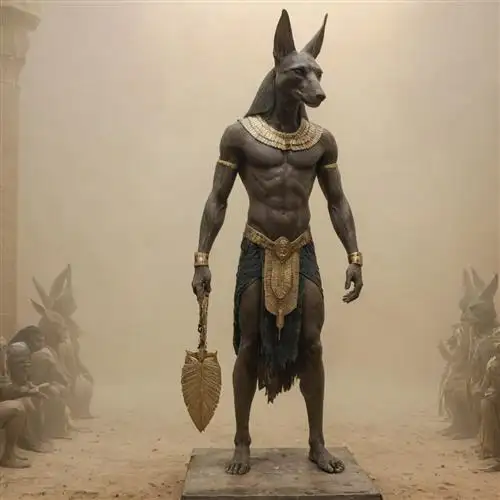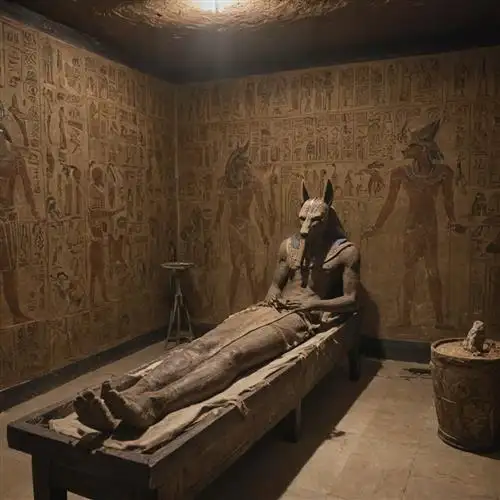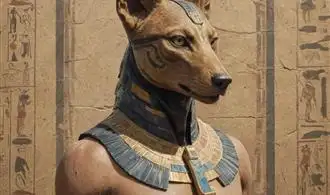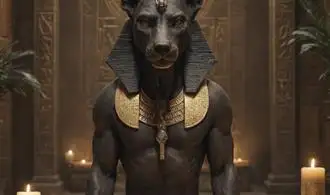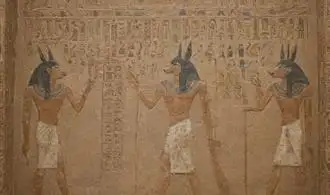
Unraveling the Mysteries of Anubis
Anubis, the enigmatic jackal-headed deity, has long captivated the imagination of scholars and enthusiasts alike. As the ancient Egyptian god associated with the afterlife, mummification, and the protection of the dead, Anubis holds a central role in the rich tapestry of Egyptian mythology. Delving into the mysteries surrounding this powerful figure can shed light on the intricate beliefs and practices that shaped the ancient Egyptian worldview.
At the heart of Anubis' significance lies his role as the guardian of the underworld, responsible for the crucial process of mummification. Believed to have the ability to traverse the realms of the living and the dead, Anubis was entrusted with the sacred duty of preparing the deceased for their journey into the afterlife. This involved the meticulous process of embalming, which not only preserved the physical body but also imbued it with the necessary spiritual attributes for the soul's transition to the next world.
Beyond his role as the overseer of mummification, Anubis was also believed to guide the deceased through the perilous trials of the underworld. In the famous weighing of the heart ceremony, Anubis would stand vigilant, ensuring the deceased's soul was pure and worthy of passing into the afterlife. This ritual, depicted in the Book of the Dead, highlights the critical importance of Anubis in the Egyptian conception of the afterlife and the belief in the soul's journey through the underworld.
Interestingly, Anubis' iconography and symbolism extend far beyond his role in the afterlife. As a jackal-headed deity, Anubis is often associated with the desert, scavengers, and the liminal spaces between life and death. This dual nature, both protective and ominous, speaks to the complexities of ancient Egyptian religious beliefs, where deities could embody both benevolent and ominous aspects.
The cult of Anubis was widespread throughout ancient Egypt, with numerous temples and shrines dedicated to his worship. These sites served as centers of pilgrimage, where the faithful could seek the god's guidance and protection, both in life and in the afterlife. The reverence for Anubis was further solidified through his association with other prominent deities, such as Osiris, the lord of the underworld, and Isis, the goddess of magic and healing.
The Weighing of the Heart Ceremony
The Weighing of the Heart Ceremony was a significant ritual in ancient Egyptian mythology, closely associated with the god Anubis. This sacred ceremony played a crucial role in the journey of the deceased through the afterlife, determining their fate and paving the way for their transition to the next stage of existence.
At the heart of the Weighing of the Heart Ceremony was the belief that the deceased's actions and moral character would be judged by the gods. Anubis, the jackal-headed deity, played a central role in this process, overseeing the weighing of the heart against the feather of Ma'at, the goddess of truth and justice.
The ceremony began with the mummification of the deceased, a meticulous process that prepared the body for the journey to the afterlife. Once the mummification was complete, the heart was removed and placed on one side of a scale, while the feather of Ma'at was placed on the other. This symbolized the weighing of the deceased's moral character and their adherence to the principles of truth, justice, and righteousness.
If the heart was found to be in balance with the feather, it was considered pure, and the deceased was deemed worthy to continue their journey to the afterlife. However, if the heart was found to be heavier, it was believed to be weighed down by the individual's sins or wrongdoings, and the deceased would be denied entry into the afterlife, facing a fate worse than death.
The Weighing of the Heart Ceremony was not merely a symbolic ritual; it was a profound expression of the ancient Egyptians' belief in the importance of moral and ethical conduct. The ceremony reinforced the idea that the afterlife was a realm where one's actions in life would be scrutinized and judged, and that the ultimate reward or punishment lay in the balance of one's heart.
Anubis and the Mummification Process
Anubis, the jackal-headed Egyptian god, played a crucial role in the mummification process, a sacred ritual that ensured the deceased's journey to the afterlife. As the god of embalming and the protector of the dead, Anubis oversaw the intricate process of preserving the body and preparing the soul for its next life.
The mummification process was a complex and meticulous undertaking, with Anubis guiding the embalmers through each step. The process typically began with the removal of the internal organs, which were then placed in canopic jars, each guarded by a different deity. Anubis was responsible for the protection of the liver, lungs, stomach, and intestines, ensuring their safe passage to the afterlife.
After the removal of the internal organs, the body was carefully washed and dried, often with the use of natron, a naturally occurring salt. Anubis then oversaw the cutting of the body, known as the "Opening of the Mouth" ceremony, which was believed to restore the deceased's senses and allow them to speak in the afterlife.
The next step involved the careful wrapping of the body in linen bandages, a process that Anubis closely monitored. The embalmers would carefully wrap the body, layer by layer, ensuring that the wrappings were tight and secure. Anubis was believed to guide the embalmers' hands, ensuring the perfection of the mummification process.
Finally, Anubis would perform the final rites, placing amulets and talismans on the body to protect it on its journey to the afterlife. These items, such as the scarab beetle, were believed to hold powerful symbolic meaning and were placed strategically on the body to ensure the deceased's successful transition to the next life.
The Curse of Anubis and the FOMO of the Afterlife
Anubis, the ancient Egyptian god of the dead, has long been a figure of fascination and dread. As the guardian of the underworld and the protector of the deceased, Anubis' presence in the afterlife was believed to be both necessary and ominous. This dichotomy has given rise to a unique phenomenon known as the FOMO (Fear of Missing Out) associated with the Anubis-guided afterlife.
The Egyptians believed that Anubis would oversee the weighing of the soul, a critical moment that determined whether the deceased would be granted eternal life in the afterworld or be condemned to oblivion. This belief instilled a deep-seated fear among the living, a fear of not being deemed worthy by Anubis and thus being denied the opportunity to experience the wonders of the afterlife.
This FOMO was further amplified by the intricate rituals and elaborate preparations that were believed to be necessary to ensure a smooth transition into the afterlife. The mummification process, the inclusion of specific grave goods, and the recitation of sacred spells were all seen as essential to appease Anubis and secure a favorable judgment. The thought of failing to fulfill these requirements was a constant source of anxiety for the ancient Egyptians, as they feared that their souls would be condemned to eternal oblivion.
Moreover, the role of Anubis extended beyond the moment of judgment. The god was believed to guide the deceased through the trials and tribulations of the underworld, ensuring their safe passage to the afterlife. The fear of being abandoned or lost in the treacherous realms of the dead, without the protection of Anubis, further contributed to the FOMO associated with the afterlife.
The legacy of Anubis and the FOMO of the afterlife continues to captivate modern audiences. The imagery of Anubis, with his jackal-like head and piercing gaze, remains a powerful symbol of death and the unknown. The fear of missing out on the promised rewards of the afterlife, as well as the dread of Anubis' judgment, still resonate with people, inspiring both fascination and trepidation.


